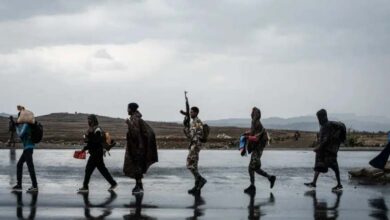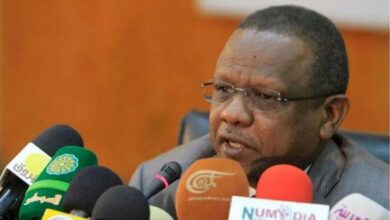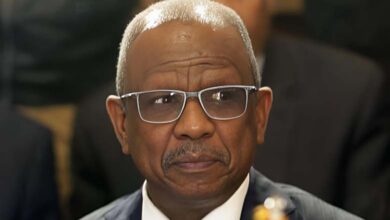Historic Blows… The Stages of Germany’s Fight against the Brotherhood and Its Organizations

The Central Council of Muslims in Germany has stripped the Muslim Brotherhood and its most prominent leader, Ibrahim El-Zayat, who is the son-in-law of the founder of the Muslim Brotherhood in Turkey, of their positions in the organization. This comes at a time when the Council, a famous Islamic organization comprising tens of thousands of Muslim members of various nationalities, held its elections yesterday amid major challenges facing Muslims in Germany, according to reports.
After Germany’s actions against the Muslim Brotherhood and Ibrahim El-Zayat, one of the most dangerous leaders within the International Organization of the Muslim Brotherhood, it revealed historic stages in the German authorities’ dealings with the Brotherhood.
The year 2001 was Germany’s main turning point in how it dealt with the Muslim Brotherhood – after the 9/11 attacks, Germany began investigating Brotherhood networks and the influence of ideology on extremism and terrorism in the country.
Attention began to be paid to the Brotherhood’s historic role as a springboard for important terrorists including al-Qaeda founder Osama bin Laden and Ayman al-Zawahiri, who was killed recently in a US raid. In particular, Germans began to examine the extent to which Brotherhood organizations are linked to Germany by the Union of Islamic Organizations in Europe, known as the Council of European Muslims (CEM) since 2020, which is one of the most important transnational decades of the Brotherhood network in Europe.
This was the beginning of the second phase of German politics, when official contact with the Muslim Brotherhood and other groups espousing political Islam was avoided, at least as part of German counterterrorism cooperation with governments such as Jordan, Syria, and Egypt. Yet the Brotherhood continued to gain influence among Germany’s Muslims, spreading its ideas about Islamic law and a model system of government that were deeply at odds with Western notions of popular sovereignty and liberal democracy.
The third phase of Germany’s policy towards the Muslim Brotherhood started in 2011, with the beginning of the Arab Spring revolutions, when Berlin shifted to a policy of “cautious engagement.” After being surprised by the Brotherhood’s rise to power in Egypt and Tunisia, and their rise to positions of power in Libya, the German government rushed to find a new policy. One of the concepts was that the Turkish government represented a moderate compromise of an Islamist party in power within the structure of a secular state, and this led to immediate tensions.
This policy did not last long, the Brotherhood regime fell in Egypt in 2013, and Libya collapsed again into civil war in 2014, but at that time ISIS was inaugurated; The spread of a wave of terrorism in Europe from 2014 to 2017 changed perceptions across the continent about the Brotherhood.
In this fourth stage of Germany’s engagement with the Brotherhood, the Germans are following the lead of countries like Austria and France, which have boosted their own counterterrorism and extremism measures. The German authorities are beginning to look at the social damage caused by extremist groups, not only Islamists like the Brotherhood, but groups like ultra-nationalist Turks and gray wolves, and the Germans are beginning to move toward legislation, particularly the search for restricting foreign sources of funding for Islamist groups; “to map funding from government financial assistance, tax exemptions, and investments such as real estate, and look forward to regulating the activities of Islamists inside Germany.”
An official report by the European Parliament detailed the penetration of the Brotherhood into ten European countries and focused on several ideas, including ideological divergence across Brotherhood-linked groups and the organization’s approach to nationalism and its financing.
On the security front, the German Federal Office for the Protection of the Constitution takes a more active approach to the Muslim Brotherhood, and monitors its structure and intentions. This took place within the framework of a general political transformation at all levels in Germany that made the dangers of the Muslim Brotherhood more evident. This was reflected in the discussions in the German Parliament at the present time, where two draft resolutions were tabled to confront Islamist organizations, especially the Muslim Brotherhood.












